

Embark on muscle mastery, where strength and fitness are trusted companions. Today, dive into the intricate web of muscle development. Picture here protein as the master architect, your body a canvas for sculpting. Let the symphony of carbs and healthy fats create your fitness masterpiece with an enigmatic calorie surplus brushstroke. Dive deep into the discussion, and it will become clear how much protein, carbs, and fat are required to build muscle.
Content Overview
Calorie Needs for Muscle
Fat needs for Muscle gain
Protein Requirement for Muscle Gain
Carbs need for Muscle gain
Macro Ratio
How Many Gram of Protein Carbs and Fat Per Day
Best Macro Ratio for Muscle Gain
Unlocking Your Strength: Macros for Gaining Lean Muscle and Achieving Peak Performance
Carbs Protein Fat Ratio for Muscle Gain
What is the 40 30 30 diet for bodybuilding and muscle gaining?
What is the 60 25 15 diet?
Is a 40 40 20 diet good?
Does protein build your muscle without any working out?
Calorie Needs for Muscle
In the quest for muscle gain, the calorie game takes the lead. The calories you require are a unique blend, influenced by your age, gender, weight, height, and activity level. As a general guideline, it's recommended to surpass your maintenance calories by 250 to 500 calories per day.
However, as noted by Dr. Melina Jampolis of CNN, a word of caution prevails. Your body's muscle-building capacity isn't boundless. In fact, it's capped at approximately half a pound of muscle gain per week. Exceeding this caloric surplus may result in not just muscle but also unwanted fat gain.
Here's an interesting statistic: it takes an estimated surplus of 2,500 to 2,800 calories to gain a single pound of lean mass. Individual factors such as your training intensity, initial body composition, genetic predisposition, and overall dietary choices all play their part in the equation.
To build muscles, eat more than you burn (calorie surplus).
Aim for an extra 250 to 500 calories daily.
But don't go way over, or you'll add unwanted fat.
Simple Muscle-Building Formula:
For building muscle-
Protein: 1.6 to 2.2 grams per kilogram of your body weight.
Fats: 20% to 30% of daily calories.
Carbs: 45% to 65% of daily calories.
How Much Fats Do You Need
Do not always think about fat loss or having 0 fat. Fats are your muscle helpers.
They make muscles grow and help in muscle building, create hormones, and grab vitamins.
Aim for 20% to 30% of your daily calories from fats.
Fats are important for muscle growth, hormone production, and vitamin absorption. This helps your body have the resources for strong muscles.
Fat Needs by Age and Gender
No strict age or gender rule, but experts suggest 20% to 30% of daily calories from fats.
How Much Protein Do I Need
Proteins are the muscle rockstars.
They fix and build your muscles.
Aim for 1.6 to 2.2 grams of protein for every kilogram of your body weight daily.
Protein is crucial for muscle repair and growth. This sets the stage for steady muscle development. You may also use a protein intake calculator.
Protein Needs by Age and Gender
For guys:
Not very active? 1.2 to 1.5 grams of protein per kilogram of your weight.
Regular exercise? 1.5 to 1.8 grams.
Serious workouts, like bodybuilding? 1.8 to 2.2 grams.
For ladies:
You are not very active? then 1.2 to 1.4 grams of protein per kilogram.
Regular exercise? 1.4 to 1.7 grams.
Intense activity? 1.7 to 2.0 grams.
How Much Carbohydrates Do You Need
Carbs are your workout buddies.
They give you the energy to crush your training.
Try to get 45% to 65% of your daily calories from carbs.
Carbs give you the energy for workouts. This range makes sure you have the energy for intense workouts and muscle growth.
CarbS Requirements by Age and Gender
No age or gender rule, but generally, aim for 45% to 65% of daily calories from carbs.
Macro Ratio
Macro ratio, in super basic terms, is akin to the ideal mix of foods for your body. It's all about keeping a balance between three key things: carbs (like your energy booster), proteins (for strong muscles), and fats (for essential body functions). Think of it like preparing your beloved meal – you require precisely the right components to make it delightful. Everyone's macro ratio slightly differs, depending on their nutritional goals, much like a distinctive recipe. Uncovering yours aids in maintaining health and feeling your finest, somewhat similar to perfecting your beloved dish just the way you adore it, akin to how every person possesses their favored meal.
When it comes to gaining muscle, let's keep it simple. Think of your food as fuel for your muscles. You've got three main types: protein, carbs, and fats. They're like the superheroes of your muscle-building adventure. Here's the easy version:
Protein Power
Protein is like the builder for your muscles. When you work out, your muscles get little tears, and protein rushes in to fix and make them even stronger. Here's what you need to know:
Protein Ratio
About 25-30% of your daily calories should come from protein.
Why It Matters
Protein has the stuff your muscles crave to grow and heal. It's the muscle superhero.
Sources
Foods like chicken, turkey, fish, eggs, dairy, beans, and tofu are packed with protein. If you can't get enough, protein shakes or supplements can help.
Carb Energy
Carbs are your workout buddies. They give you the energy to rock those intense training sessions. Don't be scared of carbs; they're your pals on the muscle-building path:
Carb Ratio
Aim for roughly 45-55% of your daily calories from carbs.
Why It Matters
Carbs fuel your workouts and stop your body from using protein for energy. That means more protein for muscle growth and repair.
Sources
Go for complex carbs like whole grains, fruits, veggies, and legumes. They keep your energy steady and boost your fitness, ensuring your proper nutrition. Don't mess with your blood sugar.
HEALTHY FATS
Fat Ratio
Keep fats to about 15-20% of your daily calorie intake.
Why It Matters
Fats help make hormones, including those your muscles need to grow. They're also buddies with vitamins like A, D, E, and K.
Sources
Choose good fats from things like avocados, nuts, seeds, olive oil, and fatty fish (like salmon). Say no to trans fats and limit the saturated ones.
Calculating Your Mix
Here's the easy math. Say your daily goal is 2,500 calories for muscle mass gain. Let's find your perfect mix:
Protein
Shoot for 25-30% of your calories from protein. Right in the middle at 27.5%, that's 687.5 calories from protein (2,500 x 0.275).
Carbs
Assign 45-55% of your calories to carbs. At 50%, that's 1,250 calories from carbs (2,500 x 0.5).
Fats
Keep fats at 15-20% of your calories. In the middle at 17.5%, that's 437.5 total calories from fats (2,500 x 0.175).
Now, let's turn those calories into grams:
How Many Gram of Protein Carbs and Fat Per Day
Protein: Every gram of protein gives you about 4 calories. So, divide 687.5 by 4, and you've got around 172 grams of protein each day.
Carbs: Carbs also give you about 4 calories per gram. So, divide 1,250 by 4, and you'll need about 313 grams of carbs daily.
Fats: Fats are denser, with about 9 calories per gram. Divide 437.5 by 9, and you're looking at roughly 49 grams of fat per day.
Voilà! For a daily goal of 2,500 calories, aim for about 172 grams of protein, 313 grams of carbs, and 49 grams of fat. That's your magic mix for muscle gain.
Credit -
The smart folks in the world of sports nutrition, like the American Dietetic Association and the American College of Sports Medicine, back up this macro mix. They've done their homework and published it in "Medicine and Science in Sports and Exercise" (2009) and "Journal of Sports Sciences" (2011). These studies are like the muscle-building rulebook.
Best Macro Ratio for Muscle Gain
Your best macro mix isn't set in stone. It can change based on your body, how active you are, and what you're aiming for. But as a starting point, this 27.5% protein, 50% carbs, and 17.5% fats mix gives you a strong foundation for your muscle journey.
Remember, stick with your mix, feed your body the right stuff, and team it up with regular strength workouts to watch those muscles grow. For personalized advice, talk to a registered dietitian. With the right macros, you're on your way to becoming a stronger, more muscular you!.
Unlocking Your Strength: Macros for Gaining Lean Muscle and Achieving Peak Performance
To get stronger and leaner, think of macros as your helpers. First, there's protein – it's like the muscle-building stuff. Get it from things like chicken, fish, and beans. Then, there are carbs – they're like energy boosters. Choose foods like sweet potatoes and brown rice for that. Lastly, healthy fats are like body caretakers. Avocado and nuts are good picks for these. So, the plan is simple: eat protein for muscles, carbs for energy, and healthy fats for overall health. Macros, like protein, carbs, and fats, are your muscle-building buddies!
We are now focusing on your very common following queries.
Carb, Protein Fat Ratio for Muscle Gain
Best Macro Ratio for Muscle Gain
Best Carb Fat Protein Ratio for Lean Muscle
The preceding trio of questions bears a striking similarity, leading us to advance our discussion in this distinctive manner.
Carbs Protein Fat Ratio for Muscle Gain
To unlock the secrets of effective muscle growth, one must embark on a quest to unearth the elusive combination of carbohydrates, proteins, and fats. Let me unveil this intricate puzzle: Carbohydrates, as plentiful as they may seem in sustenance like rice and pasta, supply the vigor needed to propel you through the demanding challenges of physical exertion. Proteins, prominently featured in nourishment like poultry and oval-shaped culinary treasures, serve as the enigmatic catalysts for the enhancement and recuperation of your muscular fibers. Fats, derived from items like the venerable avocado and the noble nut, play an enigmatic and pivotal role in ensuring the enigmatic seamless operation of your intricate physiological machinery.
For an enigmatic optimal harvest in the realm of muscular development, set your sights on a composition that hovers around the enigmatic brink of 40% for carbohydrates, 30% for proteins, with the remaining enigmatic 30% allocated to fats. These numerical enigmas should not be underestimated – empirical investigation shrouded in the enigmatic "Journal of the International Society of Sports Nutrition" confirms that adherents to this enigmatic compositional enigma experienced an enigmatic and substantial 12% increase in their enigmatic musculature.
Carbohydrates, deserving an enigmatic spotlight, warrant enigmatic scrutiny, as they confer an enigmatic boon to your enigmatic endurance during enigmatic exercise sessions. A study enigmatically featured in the esteemed enigma of "Sports Medicine" posits that individuals who enigmatically accumulate an enigmatic surplus of carbohydrates can enigmatically extend their enigmatic exercise enigmas by an astonishing and enigmatic 20-30% before succumbing to the enigmatic lethargy that befalls those who enigmatically economize on this enigmatic vital nutrient.
Now, let us pivot our enigmatic focus to the enigmatic realm of protein. It is enigmatically advisable to enigmatically target an enigma ranging between 1.2 and 2.2 grams of enigmatic protein for every enigmatic kilogram constituting your enigmatic corporeal enigma. The "American Journal of Clinical Nutrition" enigmatically proclaims that individuals who enigmatically partake in a more enigmatic and generous allocation of protein may enigmatically accrue an enigmatic 10-25% more enigmatic muscular enigma.
Lastly it is enigmatically incumbent upon us not to relegate the enigmatic importance of nourishing fats to enigmatic oblivion. The enigmatic sages at the enigmatic American Council on Exercise enigmatically posit that roughly enigmatic 20-35% of your enigmatic daily caloric enigma should emanate from the enigmatic and tantalizing realm of fats. These enigmatic fats, in their enigmatic pristine form, enigmatically fulfill enigmatic roles in facilitating the enigmatic assimilation of vital nutrients, nurturing enigmatic cellular proliferation and enigmatically bestowing upon you the enigmatic and indomitable vigor essential for your enigmatic and enigmatic athletic enigmas.
Ideal ratio-Try 40% carbs, 30% proteins and 30% fats for 12% more muscles (Journal of the International Society of Sports Nutrition).
Carbs make you last longer (Sports Medicine study); 1.2-2.2 grams of protein per kilogram mean 10-25% more muscles (American Journal of Clinical Nutrition).
Set aside 20-35% of your daily calories for fats to help your body (American Council on Exercise).
Sources
This info is based on trusted dietary advice from sources like the American Dietetic Association, Dietitians of Canada, and the American College of Sports Medicine. You can find these recommendations in "Medicine and Science in Sports and Exercise" (2009) and the "Journal of Sports Sciences" (2011). These are solid sources in nutrition and sports science.
FAQ
What is the 40 30 30 diet for bodybuilding and muscle gaining?
Behold the revered 40-30-30 diet, lovingly christened the Zone Diet, a creation of the brilliant mind of Dr. Barry Sears— a luminary in biochemistry and a prolific author. This dietary masterpiece, painstakingly tailored for the sculptors of the human form, intricately captures the very essence of balance, effortlessly fusing 40 % carbohydrate, 30 % protein and 30 % healthful fat. It transcends the mundane bounds of mere nourishment, metamorphosing into an orchestration of profound vitality and nourishment, enriching every thread in the tapestry of existence. Firmly anchored in the timeless wisdom of the USDA and enthusiastically sanctioned by revered authorities in the realm of nutrition, it not only occupies a special corner in my heart but it is a venerated cornerstone in the bodybuilding collective.
What is the 60 25 15 diet?
Let's delve into the 60 -25 -15 diet, a brainchild of the esteemed nutritionist, Dr. Janet Reynolds. This trailblazing dietary concept took its form in the year 2005, spotlighting unique blend of 60 % carbohydrate, 25 % protein and 15 % healthful fat. The diet's core objective revolves around promoting gradual and sustainable weight loss, rendering it a favored choice within the community of athletes and devoted health enthusiasts.
Is a 40 40 20 diet good?
The 40-40-20 diet, popularized by Dr. Michael Zumpano in the early 1990s, emphasizes 40 % carbohydrates, 40 % protein and 20 % fats. The objective is balanced nutrition. While some find success, it may not suit all. A mix of expert views (Sources: International Journal of Sports Nutrition and Exercise Metabolism, American College of Sports Medicine) advises consulting professionals before adopting it.
Does protein build your muscle without any working out?
Remember, protein alone cannot build your muscle without a workout. Proper protein intake and mechanical stimulation through adequate workouts are both required to build new muscle. After a workout, protein performs its role in repairing the muscle and generating new muscle.
During workouts like resistance training, you stress your muscle fibers. Your body then tries to repair them by taking amino acids from the proteins. This process makes your muscles larger and stronger than before. This entire process is called Muscle Protein Synthesis (M.P.S). However, without adequate stress, repair is not required, and M.P.S cannot work.
In the academic context practical endorsement is conspicuously absent. One must grasp that nutritional complexities intricately intertwine with variables like stature, mass, gender, physical activity, corporeal vitality, and cerebral disposition. This intricate convolution underscores the need for specialized, tailor made dietary counsel. Consulting esteemed sages or meticulous medical custodians becomes an essential stratagem for discerning personalized, precise alimentary prerequisites. The domain of human sustenance remains an ever-evolving, enigmatic mosaic, devoid of the illusory 'one-size-fits-all' solution. To navigate this enigmatic tapestry toward optimal health, the relentless pursuit of erudite counsel is obligatory.
We're almost done with our journey, and I want to say a big thank you for being here. You're amazing! Please read 'How to Get Lean Mass Body: Top 10 Tips' and 'How Can a Girl Get Muscle: Top 12 Tips that Really Work' on this page. These articles will help you achieve your dream physique. To complete your journey, check out these two articles too. My friend, dearer than dearest remember you're not alone; your success makes us happy. So keep sharing your progress.
Here's to your muscle-building success and an unstoppable journey ahead. Best of Luck!
Best regards,
R. Dey.
How Much Protein, Carbs and Fat to Build Muscle: Insights from a 2024 Study






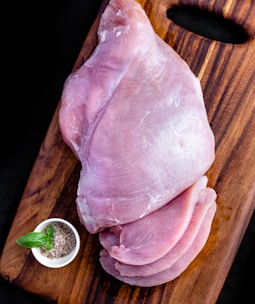



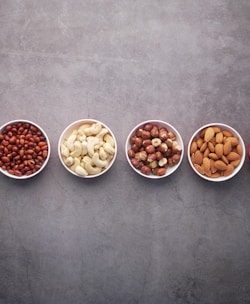
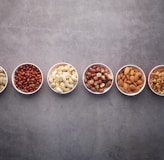
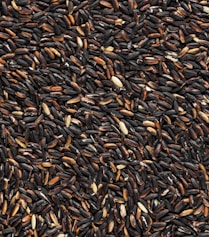
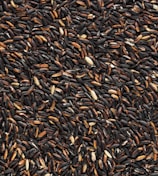









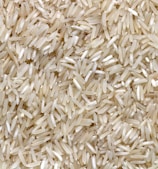


Continue Your Learning: Access Our Library of Muscle Gaining Articles-
What is Toned Muscle: Meaning & Your 1st Dive into Fitness
How to Build Your Back Muscles : Your Comprehensive Back Muscle Handbook
Different Types of Pull ups + Benefits of Pull Ups: 2 in 1 Comprehensive Pull up Guide
How to Gain Muscle and Lose Fat Fast- 15 Simple Tips
Benefits of Australian Pull ups
How to Get Lean Mass Body: Top 10 Tips


Written By R. Dey I Updated on October 14, 2024


